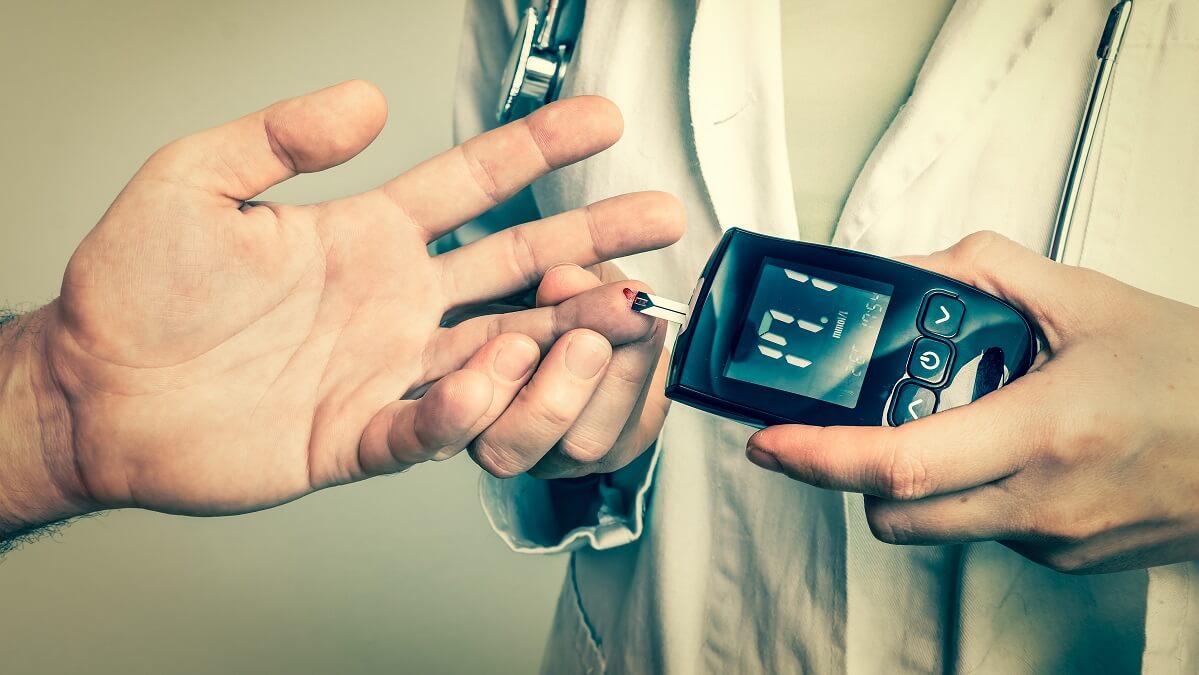As we navigate the complexities of ageing, our health becomes an increasingly important topic of discussion, especially for those of us over 60.
One condition that’s become a modern-day epidemic is type 2 diabetes, a disease that not only affects blood sugar levels but, as recent research suggests, may also significantly increase the risk of some of the deadliest cancers.
You May Like
A study analysing health records from 95,000 individuals has revealed a startling connection between type 2 diabetes and an elevated risk of liver and pancreatic cancers, with women facing the greatest increases.
The research, which delves into the intricate relationship between diabetes and cancer, suggests that women recently diagnosed with type 2 diabetes have nearly double the risk of developing pancreatic cancer and almost five times the risk of liver cancer compared to those without diabetes.
The situation is also concerning for men, though slightly less so than for women. Men with new-onset type 2 diabetes are faced with a 74 per cent increase in the likelihood of pancreatic cancer and an almost quadrupling of liver cancer risk within five years of their diabetes diagnosis.

Even the risk of bowel cancer, which is less pronounced, is 34 per cent higher in women and 27 per cent higher in men with new-onset type 2 diabetes.
This research, conducted by Owen Tipping, a medical student, and Andrew Renehan, a professor of cancer studies and surgery at the University of Manchester, aims to isolate the impact of diabetes on cancer risk, independent of obesity—a known risk factor for both conditions.
Previous studies have established a link between obesity and 13 types of cancer, many of which are also more prevalent among individuals with type 2 diabetes. However, disentangling the direct influence of diabetes on cancer risk has been challenging for researchers.
To address this, the Manchester team turned to the comprehensive UK Biobank, which houses medical and lifestyle data on half a million people.
By comparing the records of 23,750 people with newly diagnosed type 2 diabetes to over 70,000 matched controls without diabetes, they were able to draw more definitive conclusions.
One notable finding is that there tends to be a surge in cancer diagnoses shortly after diabetes is detected, likely due to increased medical testing.
To account for this, the researchers excluded cancer cases reported within a year of a diabetes diagnosis to avoid skewing the results with cancers discovered due to better detection rather than a direct link to diabetes.
After five years, the study found that the risk of any obesity-related cancer was 48 per cent higher for men with a recent type 2 diabetes diagnosis compared to those without the condition. For women, the risk was 24 per cent higher.

Interestingly, not all obesity-related cancers were affected by diabetes. For instance, women with diabetes did not show an increased likelihood of developing endometrial cancer or post-menopausal breast cancer.
The lifetime risks for liver and pancreatic cancer are generally higher for men than women. In the UK, one in 76 men and one in 130 women will develop liver cancer, while one in 55 men and one in 59 women will be diagnosed with pancreatic cancer.
While it’s too early to determine whether individuals with diabetes would benefit from targeted cancer screening, the importance of early detection, particularly for pancreatic cancer, cannot be overstated.
The mechanisms by which diabetes may promote cancer are not entirely clear, but high levels of insulin, elevated blood glucose, and chronic inflammation are suspected contributors.
Hormonal differences, insulin sensitivity, and variations in body fat distribution may also play a role in the observed sex differences.
Sophia Lowes from Cancer Research UK emphasises the importance of this study in enhancing our understanding of the diabetes-cancer link. While many questions remain, research like this is crucial in improving prevention, detection, and diagnosis of cancer.
For those of us concerned about our health, it’s important to remember that maintaining a healthy weight and a balanced diet can reduce the risk of cancer. Other preventative measures include not smoking and moderating alcohol consumption.
As we continue to learn more about the interplay between type 2 diabetes and cancer, it’s essential to stay informed and proactive about our health.
Regular check-ups, a healthy lifestyle, and an awareness of the risks associated with conditions like diabetes are key to safeguarding our well-being as we age.
Have you or someone you know been affected by type 2 diabetes? What steps are you taking to manage your health?
Also read: Continuous glucose monitors still unsubsidised for type 2 diabetes patients


I have tyoe2 and have had it for 50 years. No sign of cancer yet and I keep my health in check with my doctor.
What happened to all the research on diesel that occurred in the 1980’s and 1990’s. The NHIOS researched the possible link to cancer. They initially said that there was no link to cancer. 12 months later they stated that all the rats used in their research had died of cancer. That report was quickly hidden and disappeared from everywhere. What are they not telling us.